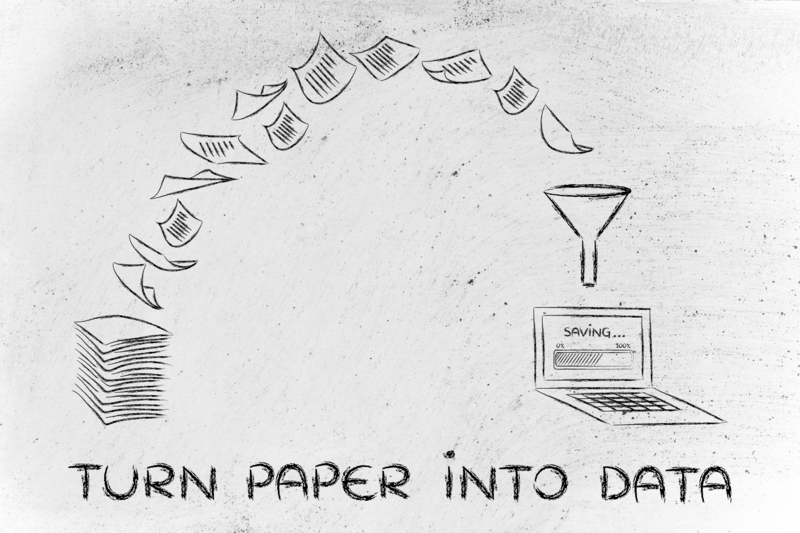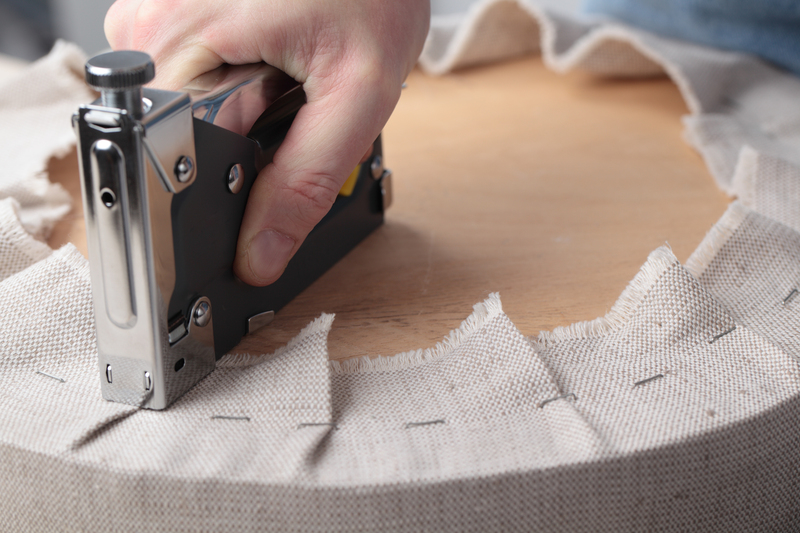Secrets to Saving Money While Disposing of Bulky Household Junk
Everyone encounters the challenge of clearing out large, unwanted household items at least once. Whether you're moving, renovating, or simply decluttering, disposing of bulky junk can be both stressful and surprisingly expensive. However, with the right strategies, you can save a substantial amount of money while efficiently removing unwanted items. This comprehensive guide uncovers the hidden secrets to saving money while disposing of bulky household junk and offers practical tips you may have never considered.

Understanding Bulky Household Junk: What Does It Include?
When we talk about bulky household junk, we're generally referring to items too large for regular waste disposal or curbside garbage collection. Examples include:
- Sofas, couches, and recliners
- Mattresses and box springs
- Refrigerators, washing machines, and other large appliances
- Televisions and exercise equipment
- Large tables, shelving units, and wardrobes
- Carpets and rugs
- Bicycles and outdoor equipment
- Yard debris from landscaping projects
These items are typically heavy and cumbersome, requiring special handling and often incurring extra fees for removal. Luckily, there are methods to minimize these costs and even turn some trash into cash.
Why Is Disposing of Bulky Junk So Expensive?
To save money on bulky junk disposal, it helps to understand where the costs come from:
- Labor and Transportation: Lifting and hauling bulky items often require multiple people and a large vehicle, driving up costs.
- Landfill Fees: Most dumps charge by weight or item, and bulky waste is heavy.
- Special Handling for Hazardous Materials: Refrigerators, electronics, and items with hazardous components demand extra care or recycling fees.
- Convenience Surcharge: Hiring a "just show up and haul it" service is convenient but often comes at a premium.
Let's explore some cost-effective alternatives that are both budget-friendly and eco-conscious.
Top Money-Saving Tips for Disposing of Bulky Household Junk
1. Check for Free Bulk Pickup Days from Your Municipality
Many local governments offer free or low-cost bulk item pickup weeks once or twice a year. Take advantage of these services by:
- Visiting your city or county website for the annual junk pickup schedule
- Ensuring items comply with pile limits and preparation requirements (e.g., emptying appliances, removing doors from refrigerators)
- Scheduling your declutter session around these dates
This is by far one of the easiest ways to save money on bulky junk removal.
2. Sell or Give Away Usable Items
One person's trash can truly be another's treasure. Maximize your savings (and maybe even make some cash) by:
- Listing items on online marketplaces like Facebook Marketplace, Craigslist, or OfferUp
- Joining local "Buy Nothing" groups or neighborhood apps
- Contacting thrift stores or donation centers that offer free pickup for large items (e.g., Habitat for Humanity ReStores, Salvation Army, Goodwill)
_Even broken or outdated equipment may be valued for spare parts or DIY projects._
3. Recycle Whenever Possible
Many recycling centers accept bulky items for little or no fee, especially metal goods, electronics, and some appliances. Steps to save:
- Locate the nearest recycling facility using websites like Earth911.com
- Separate recyclables from trash. Metal, wood, and certain plastics are often accepted at lower rates.
- Call ahead to confirm what materials are accepted and if drop-off is free.
Recycling not only saves you money but also helps reduce landfill waste, making this a win-win strategy.
4. DIY Bulk Item Hauling
If you have access to a pickup truck or can rent one cheaply, you can haul your own bulky junk directly to a local landfill or transfer station. Here's how to maximize your savings:
- Ask neighbors or friends if they're also purging items--share a rental truck and split costs!
- Rent a small trailer from a hardware store or moving company for a few hours.
- Compare landfill or dump fees in your area--some locations are much cheaper than others.
- Prepare items (break down furniture, flatten boxes) to reduce volume and weight.
While this option requires some muscle, it often results in significant junk removal savings.
5. Consider Renting a Dumpster Bag
Many people are now using disposable dumpster bags such as Bagster, which can be purchased at hardware stores. They are ideal for medium amounts of bulky waste and are often more affordable than a full-size dumpster rental. To save further:
- Fill the bag to its maximum weight and volume
- Coordinate with neighbors to share a bag for small loads
- Schedule pickup only when the bag is completely full
This option is easy, flexible, and doesn't require a large bin sitting on your driveway for days.
6. Break Items Down Before Disposing
Disassembling large items can reduce disposal costs in several ways:
- Smaller pieces fit in standard trash bins, avoiding extra pickup fees
- Compact material takes up less room in dumpsters or trucks
- Scrap material (like metal) can be separated and recycled or sold
Tools like screwdrivers, wrenches, and a little elbow grease can go a long way in saving you money.
7. Use Community Clean-Up Events
Many towns and neighborhoods organize community clean-up or amnesty days during spring or fall. Residents can discard bulky items for free or at steep discounts. Check:
- City or HOA newsletters and social media pages for dates
- Local event calendars at libraries or recreation centers
- Regional waste management authorities
Planning ahead ensures you don't miss these valuable opportunities.
How to Select a Budget-Friendly Junk Removal Service
If you lack the time or ability for DIY, commercial junk removal is often a necessity. Here's how to make it more affordable:
- Get Multiple Quotes: Always compare rates from at least three local companies. Competitors may price-match or offer discounts.
- Look for Flat-Rate, Not Hourly Charges: Flat rates prevent surprise "extra labor" fees.
- Ask About Discounts: Some services provide price breaks for seniors, veterans, or repeat customers.
- Schedule Off-Peak Appointments: Booking during the middle of the week or month may reduce costs.
- Bundle Junk Pickup with Other Services: If you need moving help, landscaping, or cleaning, consolidating jobs can produce package savings.
- Sort and Stage Items Yourself: Group your junk in an accessible location so the crew spends less time on-site.
- Specify What Must Go: Avoid "full truck" flat rates for partial loads by itemizing what needs removal.
Remember, the less work the crew must do, the cheaper your bill will be. Researching and negotiating pays off!
Common Mistakes That Make Bulky Junk Removal More Expensive
- Postponing Decluttering: Waiting until your pile is overwhelming can mean more fees and less flexibility.
- Mixing Junk Types: Combining hazardous, recyclable, and regular trash often requires sorting, which is charged at a premium.
- Poorly Packed or Unprepared Items: Not breaking down big items increases the volume, leading to higher disposal costs.
- Failing to Compare Services or DIY Options: The convenience of the first quote may cost double the alternatives.
- Ignoring Free Pickup Events: Missing your neighborhood bulk waste day can mean paying for what could be free!
Eco-Friendly and Charitable Alternatives
Your old junk could help your community or the planet! Consider these approaches before sending everything to landfill:
- Donation: Many organizations accept working furniture and appliances for local families or shelters. Some provide tax-deductible receipts.
- Creative Upcycling: DIYers or art teachers may want scrap wood, metal, or fabric.
- Churches, schools, and non-profits: Sometimes they need gently used items for events or projects.
- Scrap Buyers: Metals like aluminum, brass, and steel have cash value. Find a local scrap yard and pocket the proceeds.
Not only does this save you on junk removal costs, it also gives new life to your unwanted possessions.

FAQ: How to Save the Most Money on Bulky Junk Disposal
What is the cheapest way to dispose of large household items?
The absolute cheapest method is to utilize your municipality's free bulk pickup days, followed by donation or recycling if available. DIY hauling to the landfill is usually much cheaper than hiring a crew, and sharing costs with neighbors can make it even more affordable.
What should I do if I can't move heavy items myself?
If you're unable to move bulky items, ask local charities about free pickup for donations. Alternatively, recruit friends or family to help with heavy lifting, or compare rates for professional removal services with minimal labor included.
Is it worth renting a dumpster for just a few big items?
Unless you have a lot of construction debris or a household's worth of furniture, small dumpster bags or DIY hauling are usually more cost-effective than full dumpster rentals. Always compare options first!
How can I avoid hidden junk removal fees?
Always get an itemized estimate in writing. Ask about surcharge triggers (stairs, overage, hazardous materials), and prep all items for quick loading. Confirm total costs before scheduling service.
Are there ways to make money from my large junk?
Yes! Working appliances, usable furniture, and scrap metals are always in demand. List them online, hold a garage sale, or contact metal recycling facilities to turn your bulky junk into quick cash.
Conclusion: Your Path to Affordable, Stress-Free Junk Removal
Simplifying the process of getting rid of bulky household junk doesn't have to drain your wallet. From free municipal programs and smart recycling to creative resale and DIY hauling, there are countless techniques to lower or eliminate junk removal fees. By planning ahead, staying organized, and using the tips in this guide, you'll save money while enjoying a cleaner and more spacious home.
Ready to reclaim your space and your budget? Embrace these secrets to save money the next time you face a pile of bulky household junk. Share your own tips with neighbors and help your whole community enjoy cleaner, greener, and more economical junk disposal!
